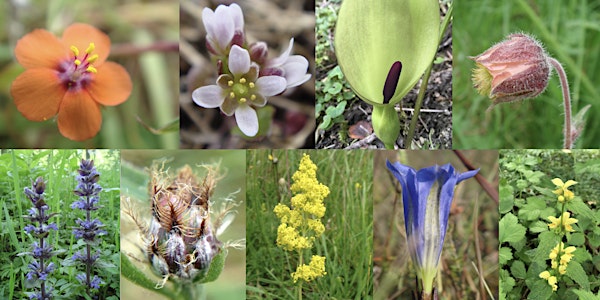
Botany for surveyors - Part 1 - NEW FOR 2024
Part 1/3; running over the identification of 70 plants you really need to know for botanical surveys, or just general enjoyment!
Date and time
Location
Online
Refund Policy
About this event
- 6 hours 30 minutes
Botany for Surveyors - Part 1
Apiaceae (Umbellifers) to Convolvulaceae (Bindweed) inlcuding the Apiaceae (Daisy family)
Course overview
Whether you are cramming for a FISC test, feeling nervous about an upcoming year of surveys, or just trying to get better at botany, this is the course for you.
We've taken roughly 200 species of forbs (wildflowers) that all botanists should be familiar with, combining some that you will already know, with slightly more tricky ones which you might not, and some which people get panicky about, such as yellow composites and umbellifers.
The course is divided into three parts, and is designed so that attendees come to all three. They are spaced a week apart to give time for the information to sink in (if you can't wait that long you can purchase a bespoke ticket and sit the courses when you want).
The courses will not be using keys, but instead focussing on easy to learn features. It will include some taxonomy and an overview of key plant families, especially where this will aid in field identification.
The courses will include a pre-recorded tutorial interspersed with short self-tests, followed by a full test, which will then be available to use as a revision aid in perpetuity. By attending the course and then repeating this test you should be able to eventually memorise these 200 plants.
At the end of Part 3 there is a live Zoom session with the tutor to go through any questions you may have. Alternatively you can email with any queries.
Part 1
This course covers c. 75 species including the following families - Carrot, Daisy, Borage, Cabbage, Bellflower, Pink and Goosefoots. Particular emphasis will be put on telling the dreaded Yellow composites apart, using straightforward methods that can be easily remembered and used in the field.
All proceeds from the course will go to supporting our endangered species conservation work.
Schedule
The video will be available to attendees for a 24 hour period (from 5pm the night before).
The actual video is about 4 hours long but you are likely to need considerably longer than this to allow time for you to pause the tutorial, and take notes on the more complicated groups. Therefore while the tutorial can be watched in 4 hours, you should allow 6 hours to give adequate space for effective learning (and breaks).
Four days prior to the course you should receive an email with all the joining details on. It appears that several work-based servers are spamming messages from Eventbrite, so if you have not heard from us by then, please check your spam folder, and the email address you used for the booking. In the event you can't find the email please be in touch.
We also offer a bespoke option (at the checkout) which allows you to choose a day and time convenient to you.
About the tutor
Dominic Price is a highly regarded botanical tutor and has been running courses for all levels of ecologists since 2007. He is director of The Species Recovery Trust and specialises in the conservation of endangered species. He is the author of A Field Guide to Grasses, Sedges and Rushes and co-author of The Field Guide to Bryophytes and The Photographic Guide to Winter Trees and Shrubs.
Course certificate
This course can be used as part of your Continuing Professional Development (CPD). We invite attendees to download their own certificate and complete the numbers of hours spent on the course, as we are aware some attendees spend more time reading up about courses before the day, and writing their notes up and sitting the online course tests afterwards. The hours on your certificate should accurately reflect this time.
Feedback
For feedback on previous courses please visit our Trustpilot page here
Organised by
A charity devoted to saving some of the UK's most endangered species